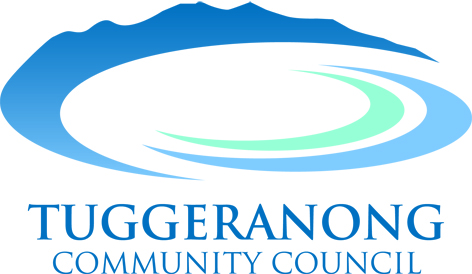
The Tuggeranong Community Council is still undertaking extensive community consultation via an online survey (click to participate) where the majority of the respondents have so far indicated a level of concern regarding the issue of using drugs and driving.
In response the TCC has made the following submission to the ACT Government in relation to the topic of Random Roadside Drug Testing.
The TCC submission has been reproduced below:
Random Roadside Drug Testing Submission Tuggeranong Community Councill


Greetings. I read with interest the article on your drug driving survey, published in the Sunday Canberra Times on 25 April, and have subsequently read your submission to TAMS on the matter. Based on the article, I was impressed by your stated commitment to gathering the evidence and preparing a well-informed submission. However, the submission fails to live up to that promise. It is largely one-sided, failing to acknowledge the arguments against the proposed initiative.
The key problem with the so-called random roadside drug testing (so-called as it is not random at all – such testing is usually highly targeted which partly accounts for the high positive rate) is that there is no evidence, from anywhere in the world, that it has any beneficial impact on traffic safety. There is no evidence that it reduces the incidence of crashes, injuries or traffic fatalities. This is despite over five years of the initiative being conducted in Australia, and well over a decade in parts of Scandinavia. That means that your statement that ‘RRDT will provide a safer environment for all road users’ is not supported by evidence. The source you cite, the National Road Safety Strategy 2001 – 2010, does not mention drug driving so you are wrong in stating that the Strategy ‘identifies drug use and driving as a significant aspect of unsafe road use’.
Furthermore, you have dismissed as ‘completely specious’ considerations of human rights in this context. I invite you to review that position, especially in light of the provisions of the ACT Human Rights Act. It is a breach of human rights (applying the principle of proportionality) to infringe on people’s human rights by requiring them to give a sample of oral fluid in situations where there is no reasonable suspicion that the driver is impaired by a drug, and where there is no evidence that the likely benefits to the community will be significantly greater than the negative impact on human rights.
You may care to review my paper on roadside drug testing policy. It is also online at scribd: http://www.scribd.com/doc/16627783/The-Policy-Context-of-Roadside-Drug-Testing .
Perhaps the TCC will consider reviewing its position to take into account a fuller range of research evidence on this complex policy issue? The survey simply taps the opinions of people who do not know the research evidence, constituting a useful, but incomplete, contribution to your deliberations.
David McDonald
Social Research & Evaluation Pty Ltd
Wamboin NSW 2620
E: david.mcdonald@socialresearch.com.au